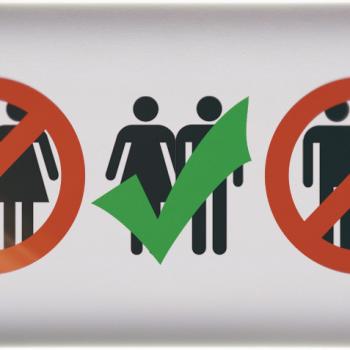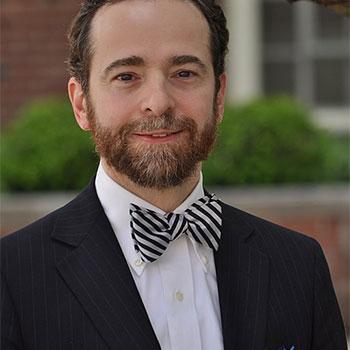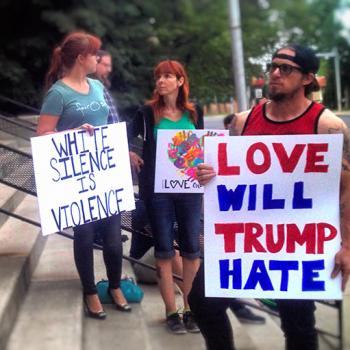
Like many others, I was very disappointed earlier this week when my hometown of Fayetteville, Arkansas, where I was born, went to college, and worked for nearly a decade as a reporter, editor, and columnist, again repealed an anti-discrimination ordinance passed by the City Council.
Ordinance 119 gave legal protection from discrimination to gays, lesbians, and transgender individuals, but a vocal group from outside of the city, led by famous breeders Jim Bob and Michelle Duggar, waged a campaign of fear and misinformation and successfully repealed it at the ballot box Tuesday.
For those from Fayetteville, it was history repeating itself.
The very same thing happened in 1998 when the city passed a resolution merely extending a similar policy to its own employees. The religious conservatives would have none of it then either, and spread similar libels, lies, and misinformation, leading to its repeal the following November.
I remember feeling hopeful then, as I did earlier this week, that Fayetteville could prove to the outside world how different it is from the rest of Arkansas on matters of diversity and inclusivity. But ultimately the votes then and now show that while the core of Fayetteville — the University of Arkansas and the downtown businesses that give the town its unique and interesting flavor — often does buck the unfortunately well-deserved stereotypes earned by the rest of the state, there is still enough anti-gay ideology simmering from its many conservative churches to make progress an uphill battle.
I’ve written before about the 1998 debate and how it changed me for good — about how knowing, as I did, what the resolution would do (and not do) and yet hearing the fear-baiting lies from supposed men of God turned me once and for all away from conservative Christianity. Yet I had held out hope that, since it was no longer the late 1990s, Fayetteville would do what hundreds of other cities and companies already do: make discrimination against the LGBT community illegal.
But no. In fact, in the wake of the ordinance’s failure, none too few of its detractors have taken to social media to argue stridently for their right to discriminate against whomever they please. To them, the civil rights advances of the past 50 years are apparently of no consequence: despite the consensus of all medical, scientific, scholarly, and professional organizations in recognizing that homosexuality and transgenderism are normative parts of the human experience for many people, they instead choose to cling to an ideology that condemns, and think that by rationalizing this prejudice using religion it somehow should shield them from discrimination laws.
But surely we all see how that is absurd: merely calling discrimination your religion should not entitle you to practice it with abandon. Nevertheless, exemptions for religious organizations were put in place in the ordinance to quell those fears, not that it did any good.
Despite those exemptions, supporters of repeal continued to assert that it would force pastors to marry same-sex couples in their churches (as if pastors are forced to marry anyone they don’t want to — they aren’t). But the nastiest of the slanders came in the form of reality TV star Michelle Duggar’s robocall, which rode an irrational slippery-slope train all the way to — you guessed it! — child predators!
The Fayetteville City Council is voting on an ordinance this Tuesday night that would allow men – yes I said men – to use women’s and girls’ restrooms, locker rooms, showers, sleeping areas and other areas that are designated for females only. I don’t believe the citizens of Fayetteville would want males with past child predator convictions that claim they are female to have a legal right to enter private areas that are reserved for women and girls. I doubt that Fayetteville parents would stand for a law that would endanger their daughters or allow them to be traumatized by a man joining them in their private space. We should never place the preference of an adult over the safety and innocence of a child. Parents, who do you want undressing next to your daughter at the public swimming pool’s private changing area?
— Michelle Duggar
This hate speech is not even worthy of counter-argument, but needless to say, the ordinance was not designed to allow sex offenders to have access to public restrooms. Despite evidence that trans* individuals are far more likely to be victims of violence than perpetrators of it, the Duggars took the very Christ-like route of demonizing an entire population of individuals with a libel, not unlike Christians did to Jews during the Crusades or white people did do to black people far too often still. Invoking the children is a timeworn, easy, but still dirty way to gin up emotion, most especially if coupled with lies. The Duggars simply took a page from humanity’s historical handbook of slander.
But they were not of course alone. Ronnie Floyd, the new president of the Southern Baptist Convention (surprised?), who heads up a franchise of churches in the area, likewise spread bizarre canards about the ordinance, including the oft-debunked claim that “Pastors face fines and potential jail time if they refuse to marry a gay couple.” Of course, this is the same man who made Islamophobia among his members a cottage industry after 9/11, so it should not surprise.
More surprising, however, was the inexplicable number of otherwise mainstream institutions that took stances against the ordinance, most likely to appease their bases. The Fayetteville Chamber of Commerce, which has long been a haven for right-wing politics, took an at once surprising and yet predictable stance against the measure, as did the area’s lone surviving newspaper, whose editorial board is not confined to Fayetteville but instead reflects the region’s far more conservative towns. It was on the editorial board of the Fayetteville paper that I served for many years, but that paper has been subsumed by several others and exists now in name only – an outward of sign of what I fear may be happening to Fayetteville as it further regionalizes with the rest of conservative Northwest Arkansas.
I still love going to Fayetteville a few times a year; I look forward to seeing the Lights of the Ozarks on the Square yet again this year. But this year it may feel different. This year, like in 1998, I am ashamed that even Fayetteville — even what most consider the best and most inclusive city in Arkansas — cannot even manage to pass a simple ordinance promoting fairness.
However, I take solace in the fact that though the religious organizations that fought Ordinance 119 in Fayetteville had (barely) enough sway to kill it in Northwest Arkansas, the trend is most definitely heading in the other direction nationwide.
I also take solace in the fact that despite the repeal of the 1998 resolution, a law doing exactly what it proposed (protecting all individuals, including gay and lesbian, in the city’s hiring and firing process) is now on the books.
Most likely something like 119 will also eventually pass into law (the alderman who proposed and passed it says he’s already working on another draft). Time seems to move slower in Arkansas, but it still marches on. Or at least we can hope.
 About Don M. Burrows
About Don M. Burrows
Don M. Burrows is a former journalist and current college preparatory school teacher. Don holds a Ph.D. in Classical Studies from the University of Minnesota. A former Christian fundamentalist, Don is now a member of the United Church of Christ and contends most firmly that the Bible cannot be read or explored without appreciating its ancient, historical context. Don lives in Minneapolis with his wife and two young children. Don blogs at Nota Bene and can also be found on Facebook.












